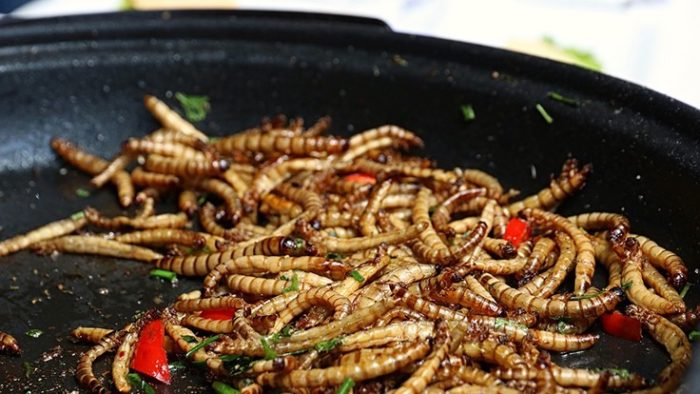Oct 15 2019
Impossible Bug Burger
 The market is innovating some burger alternatives in order to reduce demand for beef. There are potentially three reasons to reduce beef consumption – health, environmental, and ethical. How successful are these replacements?
The market is innovating some burger alternatives in order to reduce demand for beef. There are potentially three reasons to reduce beef consumption – health, environmental, and ethical. How successful are these replacements?
First let me quickly review the reasons for reducing beef. The health effects of eating red and processed meat are, at present, controversial. I reviewed this question recently at SBM. There is evidence for increased cancer and heart disease from eating large amounts of red and especially processed meat, but the absolute risk is low and the quality of the evidence is low. You can make of this what you will, and that’s the controversy. My take is that if you keep your total calories where they should be for weight maintenance, and eat plenty of fruits and vegetables, the rest takes care of itself.
The ethical concerns are complex and reflect personal values. Again, personally, I don’t have a problem with eating animals after they are dead, as long as they were treated humanely while they were alive and they were slaughtered in a humane way. However, I understand the points on the other side and respect the views of those who wish to avoid meat for ethical reasons. I currently file that away as a personal choice. I don’t think there is ethical justification for outlawing meat, however.
The environmental concerns are also complex, but it is clear that producing a lot of meat is very inefficient. Potatoes, for example, produce 17 times the amount of calories per acre than beef. But some land is better suited for grazing than farming. Cows also produce a lot of methane. Water usage from animals is also high. This does not mean the best thing to do is eliminate meat completely. Rather, as one study indicates, we should use land optimally. Some land is best for growing a certain kind of crop, while another might be best for grazing, while still other land is best left untouched for natural ecosystems.
Whether or not you think we should reduce meat consumption to zero or not, the evidence does suggest that industrialized nations are eating too much meat. So it is reasonable to moderate our meat consumption at the very least.
The question is – can technology come to the rescue? Can we ethically, healthfully, and sustainable eat our burgers? There are several approaches to this challenge. One is the veggie burger – making a burger-like substance out of plant-based protein. Most people by now have probably tried a veggie burger. They’re OK, but they are no substitute for a meat burger.
This is where the impossible burger comes in. They add hemoglobin to a veggie burger to give it a meaty taste. I have tried a couple of impossible burgers. Again, they’re fine, but there is no chance I would confuse one for a beef burger. Perhaps as the tech improves they will get better.
Another approach is culture meat – taking meat stem cells and growing them in a vat. It’s hard to make a steak this way, but burgers are easy because it’s ground up anyway. Vat-grown cultured meat burgers are available (not commercially) and the cost is coming down into reasonable range. But there remains the question of how environmentally effective are they. It all depends on the source of energy used in their production. If the meat is grown with green electricity, they are environmentally friendly. If the electricity comes from a coal-fired plant, not so much. But as we green our energy infrastructure, vat-grown meat can become part of that system.
This is probably the best solution ultimately, once we get the cost and energy efficiency down enough and scale it up to mass production. You can have actual meat without killing any animals or ruining the environment. We could even theoretically engineer the meat to be more healthful.
But there is one more option – bug burgers. Insects can be an efficient source of protein. They are energy efficient, can easily be mass produced, have a good environmental footprint, and people apparently have no ethical problem killing them. Meal worms, for example, can easily be ground up into a protein paste and cooked like a burger. I have not tried one yet, but I would like to. Similarly you can also use cricket flour as a substitute for wheat flour, so the bun could be made of bugs also.
We will probably have to move into insect farming as the world’s population grows. I suspect that any ick factor will quickly go away. Just brand them with some name that does not contain the word “bug”. Once they are ground up, the source of the protein does not matter. People will happily ignore the process of making the food, just like they do now with the meat industry.
Apparently they also taste good, but closer to a veggie burger than a beef burger. Perhaps we have to combine bug burgers and impossible burgers and make an impossible bug burger. Perhaps still we could throw in a little cultured beef – an impossible bug vat burger. That way the bulk of the protein is as efficient as possible, but there is just enough real meat to give it a meaty taste. We could also do it with regular beef – make hamburgers that are 20% beef and 80% meal worms. That’s a good way to reduce your meat consumption, have a little at a time.
In any case there are lots of reasonable options, and it seems that in the future we will have to reduce our consumption of animals because the current levels are not efficient or sustainable.






